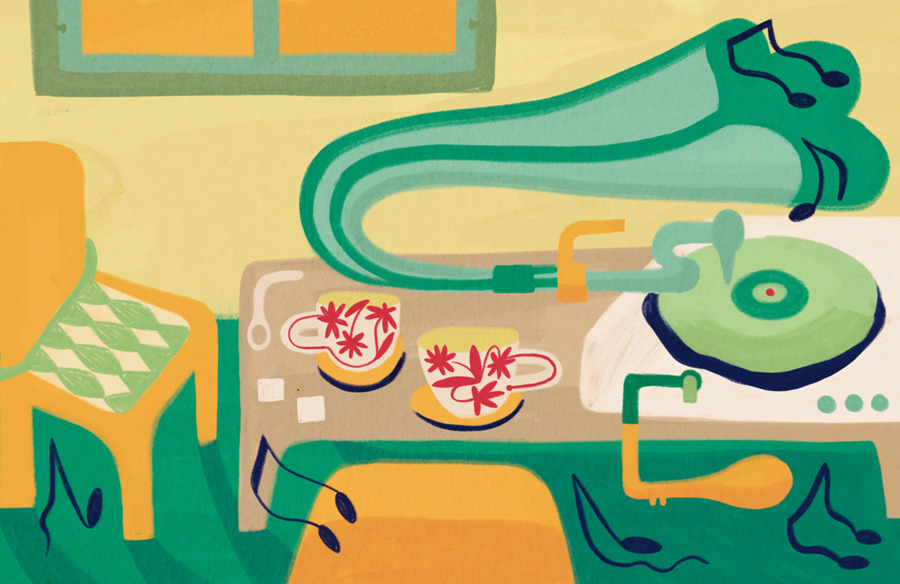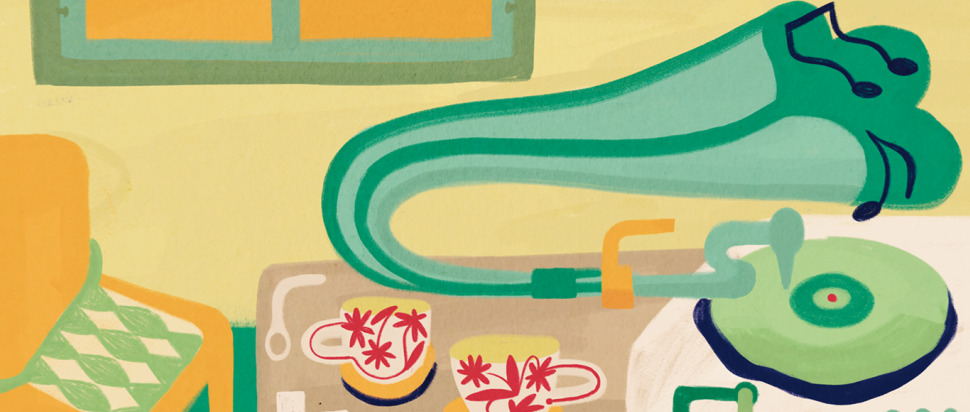Old Friends: the effects of music on dementia patients
With a day job in dementia care and education, Noah Barker shares the life-altering effects of music on dementia patients
That day, I sat cross-legged for two hours next to a man I couldn’t speak to at the time. He had late-stage cardiovascular dementia, and, to my credit, it was my first day on the job. It was a memory cafe, where people living with dementia, their care-partners, and volunteers get together to do brain engagement activities. I was paired with him for its entirety, trying and failing to meaningfully engage with what limited dementia skills I had at the time; I fumbled through group activities and rarely caught the corner of his eye.
At the end of the session, the group gathered for a final piece centred around music, presenting me with the arduous task of supporting him across the room to the piano. We moved, hand under hand, exhaustively and in lockstep. Finally sitting, his head was low enough to supplant his shoulders. As the crowd readied for the singalong, I half-heartedly lowered the large-font printout of Hey Jude to his eye level, hopeful but not expectant. The performance began, and his head rose purposefully. He sang every word. And so did a crowd of people also experiencing dementia, all conversing via 'na-na-nas.' After the song finished, he spoke to me in detail, in bursts of remembrance, about his seafaring days travelling Europe. He was suddenly there in front of me. For the first time in my life, I didn’t need to romanticise or philosophise the importance of music. It was right fucking there.
In that moment, song ceased to be some metaphorical standard of narrative, or a subjective sense of critique for those pretentious keyboard-clickers I find myself within; it was a neural pathway to his youth. It was a method of activation that seemed to ease the processes of the brain, a ritual chant to bring back an old friend. Without truly understanding it, I would follow along to this motus every week when seeing him. A golden country hit, or Beatles campfire singalong, he never minded Orbison either. It was only the week after where I played (I Can’t Get No) Satisfaction on an out-of-tune antique acoustic that I sealed my fate as the new songleader for the group. Now, it was my turn to strum a chord, and stifle my tears in wonder to see his eyes reach me. As a function of that new job, I eventually learned about the parts and functions of the brain, and how they created those conditions for my radical change.

Illustration by Magda Michalak.
In the over 100 types of dementia, one of the few throughlines is the general path the degeneration follows; while not definite, most experience a nearly nostalgic phenomenon in their temporal lobes. The left temporal lobe, which often deteriorates first, is where specific words, speech, and comprehension live in the brain. Word-finding becomes challenging, and the act of speaking with it. However, the right temporal lobe frequently lasts far into someone’s journey, and it is the centre of automatic language. Prayer, poetry, counting, spelling, rhythm, and song live here; in trying to engage with brains that are losing function, focusing on the right temporal lobe and its ties to music is a transformative practice. Combine this fact with the ages of taste crystallising in the brain (4-8 y/o, 12-24 y/o, 32-40 y/o), and revelatory conditions arise.
How best do we reach people in this state? Their past favourite songs, nostalgia, even. Dust off a record of solid number ones from the years 1950-1975, and see what happens. It’s nearly a teleportation to the times in their lives when those songs first made an impact; they are deeply made trenches in the brain during its formative years, and we’re working with what we got. Imagine a song from your youth appearing as a graspable light in the dark. For short windows, that light can activate sections of the brain, with the potential to momentarily increase memory recall and speech output. Most importantly, it brings a quality of life they deserve. What a trick to find in those invisible air waves.
It’s not one that will last forever, as dementia is ultimately a progressive, fatal disease. At first, he could recall my name with the right support, and eventually, the smile when he saw me was all I needed. No song could mend. He was my friend for nine months and passed last November. His memorial programme hangs above my desk and his widow gifted me a suit jacket of his, or two. Life goes on. I miss him. Given that this has all happened within my span of memory crystallisation, he’ll surely come back to me in some fruitful and unimagined place 50 years from now. I’ll hear pianos ringing out, and a refrain of 'na-na-nas,' and I’ll get to see my friend again.
